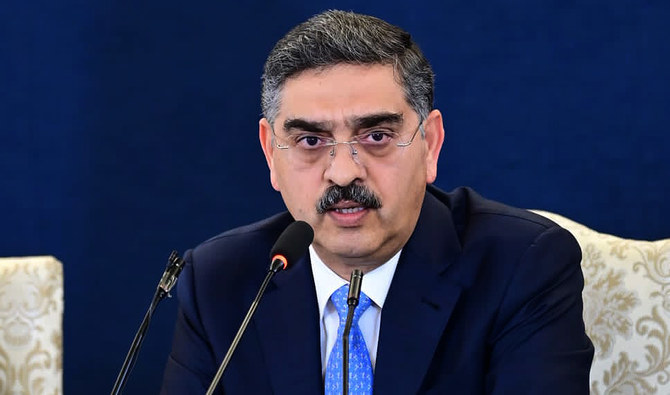ISLAMABAD: Pakistan’s foreign office announced on Thursday the country’s caretaker Prime Minister Anwaar-ul-Haq Kakar will soon travel to the United States where he is scheduled to address the annual United Nations General Assembly session on September 22.
The announcement was made during the weekly media briefing in which the spokesperson, Mumtaz Zahra Baloch, said the central focus of the 78th UNGA session would be rebuilding trust and reigniting global solidarity.
The annual session would begin on September 19 and conclude after a week on September 26.
“Prime Minister will participate in the high-level debate of the 78th session of the UN General Assembly in New York from 18th to 23rd of September,” the spokesperson told the media. “[He] will address the UNGA on the 22nd of September.”
She said Pakistan’s interim foreign minister Jalil Abbas Jilani would also accompany Kakar.
“In his address, the Prime Minister will outline Pakistan's perspective on a range of regional and general issues of concern, including the Jammu and Kashmir dispute which is among the longest-standing unresolved items on the UN agenda,” Baloch said, adding the PM would also elaborate on the significant measures taken by his caretaker administration to consolidate the country’s economic recovery and efforts to mobilize domestic and external investment.
She informed that Kakar would also participate in a summit on the sustainable development goals and other high-level meetings organized under the auspices of the UNGA.
The spokesperson maintained the UN session would provide a valuable platform to the country to deliberate on measures required at the global level to address the most pressing economic and development challenges confronting the global south in the wake of the COVID-19 pandemic, geopolitical contestations, and climate change.
On the sidelines of the session, Baloch said the prime minister would hold bilateral meetings with counterparts from various countries as well as with heads of international philanthropic organizations and corporate leaders.
The prime minister would also hold interactions with the international media.
“Pakistan sees the United Nations as the most representative and inclusive forum of the nation states,” Baloch said, adding the PM’s participation in the General Assembly session would demonstrate the country’s commitment to multilateralism.
International affairs analysts believe, however, Kakar’s participation would be primarily symbolic with limited impact due to the caretaker government’s transitional nature.
“This visit will not have much impact on the country as everyone is aware that this is a transitional caretaker setup,” former foreign secretary Salman Bashir told Arab News.
He said Pakistan was facing a lot of issues related to its security and political stability, adding that internal matters should have taken greater priority for the government than the prime minister’s UNGA participation.
“Under the current circumstances when the country is facing so many challenges, the prime minister should have stayed in the country and allowed the foreign minister to participate in the annual UNGA event,” he added.
Dr. Huma Baqai, another foreign affairs expert, partially endorsed Bashir’s opinion, saying: “The fact that he is a caretaker prime minister will not make his presence at the UNGA as effective and impactful as that of an elected PM.”
She added that despite the transitional nature of his administration, the Kakar’s presence would be necessary as a symbol of the state.
“He will be representing state policies and his speech will be less provocative and discussed,” she maintained. “But nevertheless, he will represent the state.”
Baqai said the presence of a seasoned diplomat like Jilani would also provide huge support to the prime minister.
“Foreign policy is the continuity of state policy,” she continued. “So, state representation is critical. It is irrelevant who you are represented by in that context instead of not being there and leaving a vacuum.”

















